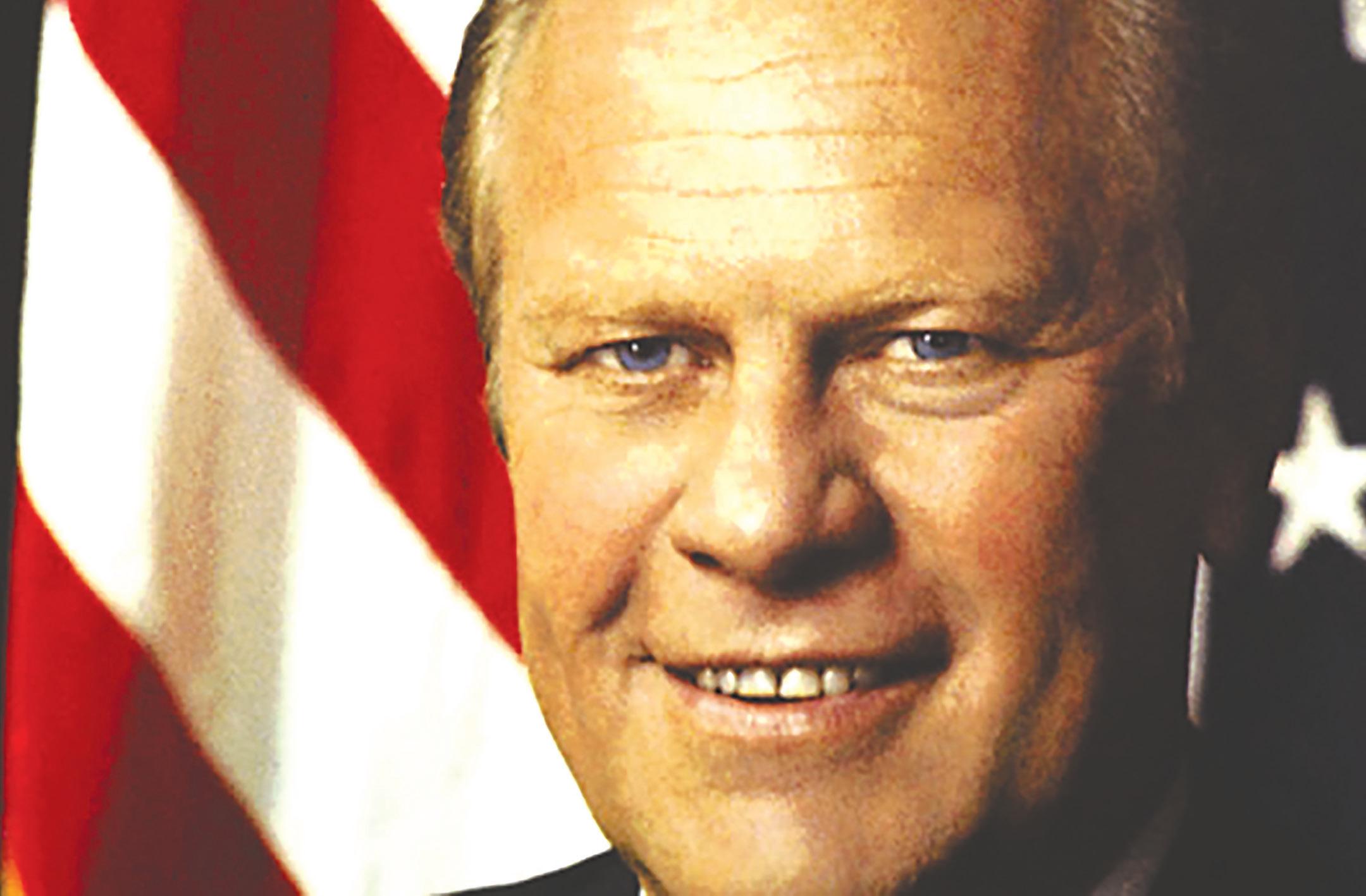
5 minute read
Real News
Richard Nixon
Nixon’s most pressing concern when he entered office was the controversial Vietnam War. Nixon took measures to reduce American casualties by forcing the South Vietnamese to do more of the fighting, a process known as “Vietnamization.” In January of 1973, a cease-fire agreement was signed, officially ending the U.S. involvement in Vietnam. At the end of the war, Nixon also signed legislation ending the military draft. Nixon also forced the last of the Southern public schools to desegregate, established Diplomatic relations with China, and created the Environmental
Protection Agency (EPA).
Ultimately Nixon will forever be tied to the infamous Watergate Scandal at the Watergate Hotel in Washington D.C., site of the Democratic National Convention. It was here that two of Nixon’s aids infiltrated the hotel in secret, hoping to find top-secret documents as well as wire-tap phones for the purposes of acquiring important information to ensure Nixon’s victory in the upcoming election. The spies were caught in the hotel, sparking an FBI ivestigation that Nixon tried to block by using the
CIA. His unsuccessful attempt to block the FBI investigation meant possible criminal charges of obstruction of justice and abuse of Presidential powers. Nixon vehemently denied any involvement with the entire Watergate Scandal. Several of Nixon’s aids were asked to testify against the President and it was ultimately revealed that Nixon had secretly taped every conversation he had in the Oval Office. Nixon denied a Congressional request to relinquish the tapes, citing his executive privilege. Eventually, the Supreme Court forced Nixon to deliver the tapes. Meanwhile the House of Representatives voted to impeach him. Facing certain impeachment by the Senate as well, Nixon resigned, making Vice President Gerald R. Ford President. After being sworn in, Ford pardoned Nixon of any wrongdoing, but this entire Watergate Scandal caused the American people to mistrust the government.
Following his presidency, Nixon wrote books and traveled to Europe. He died of a stroke on April 18, 1994, at the age of 81.
Gerald Ford, originally Leslie Lynch King, Jr., was born on July 14, 1913, in Omaha, Nebraska. Ford’s parents separated about two weeks after his birth and his mother took him to Grand Rapids, Michigan, where she soon married a man named Gerald Ford. Leslie’s mother decided to change his name from Leslie Lynch King, Jr., to Gerald Ford, Jr., after her new husband. As a child, Gerald was very athletic and became a star football player in high school, eventually landing a spot on the University of Michigan varsity football team. While at Michigan, Ford not only won a national championship in football, but he majored in economics as well as political science, graduating in 1935. After he graduated from Michigan, Ford turned down NFL contracts from the Detroit Lions and the Green Bay Packers to attend Yale Law School where he coached football and boxing to help pay for tuition. Ford received his LL.B. degree from Yale in 1941 and returned home to Grand Rapids to open his own firm with Philip A. Buchen, who would later serve as his White House Counsel. Ford also served in the military, joining the Naval Reserves after the United States entered World War II. While in the military, Ford saw significant action in the South Pacific and nearly tumbled overboard on one occasion while on the ship he was stationed on. Ford was honorably discharged in 1946, earning several war medals, including the World War II Victory Medal.


Ford made his political debut in 1948, quietly running for Congress and pulling off an upset over the five-term incumbent, Barney Jonkman. Ford was able to serve twelve successive terms while participating in important committees such as the Appropriations Committee. The Appropriations Committee determines how the United States government spends money. While in Congress, Ford became extremely popular among his fellow Republicans, including Dwight Eisenhower and Richard Nixon, but was also commended for his ability to reach across party lines and work with Democrats. The Republican Party suffered major losses in 1962 and 1964, which provided young, fresh Republicans, like Ford, the opportunity to shine. Ford was named Chairman of the Republican Conference in 1963, and in 1965, he was named the House Minority Leader, making him the highest-ranking Republican in the House of Representatives. During the Lyndon Johnson presidency, Ford spoke out frequently against Johnson’s Great Society programs and how Johnson was handling the Vietnam War. After Johnson
Gerald Ford

decided against running for the presidency in 1968, Ford became a major supporter of Richard Nixon and his successful bid for the White House. This support helped these two men become extremely close. Nixon also won the 1972 election but was quickly engulfed in the Watergate scandal that would lead to a major FBI investigation. In a plea bargain, Nixon’s then vice president, Spiro Agnew, resigned from office in 1973 to avoid prosecution for accepting bribes as vice president and governor of Maryland. Nixon subsequently chose Gerald
Ford to serve as his new vice president. Ford served as vice president for eight months before the pressure of the Watergate scandal forced Richard Nixon to resign from the presidency in 1974. Gerald R. Ford would become America’s 38th president.
Shortly after assuming the role of president, Ford pardoned Nixon for any crimes he may have committed, which meant he would never have to face criminal charges for the Watergate scandal. This move was a very controversial one as many
Americans wanted to see Nixon brought to justice for his crimes. During his presidency, Ford faced high unemployment and high inflation, which made him extremely unpopular amongst Republicans and Democrats alike. Ford was seen as a large, clumsy man due to his stature, but he is credited with being the man who restored some confidence in the White House after the Watergate scandal. In 1976, Ford decided to run for reelection. Although Ford was able to secure the Republican nomination, he was eventually defeated by Jimmy Carter.
James Earl Carter Jr., better known as Jimmy, was born on October 1, 1924 in Plains, Georgia. His father, James Earl Carter Sr., was a peanut farmer who owned his own small plot of land as well as a small store. His mother, Bessie Lillian Gordy, was a registered nurse who in the 1920s worked with African American nurses, a task that was unheard of during this time. Jimmy was always extremely well-mannered and never disobeyed his parents. In between his studies, Jimmy worked at his father’s store since he was ten years old. In school, Jimmy attended an all-white high school, but his two best friends were African Americans, and he accredits his parents with teaching him that all people, regardless of race, are created equal. While in school, Jimmy worked extremely hard and was the first person in his family to graduate from high school.
Upon graduating from high school, Carter attended a small technical school and then he joined the ROTC program at the Georgia Institute of Technology. Carter then applied at the Naval Academy in Annapolis, Maryland and he began his studies at the academy in 1943. Once Jimmy left the Naval Academy, he was assigned to work on submarines.
In 1962, after he finished his duty with the Navy, Carter believed he had a chance to be a “new southerner,” meaning he would be against segregation and avoid joining any groups that were pro-segregation. In 1963 Carter won a seat in the Georgia State Senate. Carter decided to run governor for of Georgia but lost in his first attempt in 1966. Carter ran again in 1970 and was able to rebound from his initial loss to become Governor of Georgia. After the Watergate Scandal Carter saw his chance to restore the reputation of the office of the presidency and entered the race.
Jimmy Carter was one of ten candidates for the Democratic presidential nomination in 1976, and at first he was probably the least well known. However, in a time of deep frustration with establishment politicians, Carter’s anonymity proved an advantage. Carter portrayed himself as the “common man,” and he vowed to never tell a lie all while saying he would work to balance the national budget. Carter was able to capture the Democratic nomination and faced off against Gerald Ford, the incumbent. Although he held an early lead, Ford made a comeback and made this a rather competitive election. Carter










